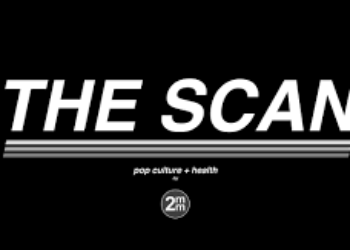MMR vaccine not associated with autism [Pediatrics Classics Series]
Image: PD
1. Among children born in Denmark during a 7-year study period, no increase in risk of developing autism was seen in those who were vaccinated against measles, mumps, and rubella relative to unvaccinated children.
Original Date of Publication: November 2002
Study Rundown: As the incidence of autism increased in the decades leading up to this study’s publication, there was ample controversy surrounding the possible connection between the measles, mumps, and rubella (MMR) and the development of autism in children. Previous studies did not find an association, but this was the first study covering this topic to have adequate statistical power and appropriate design. In this retrospective cohort study, 537 303 files from children born in Denmark were analyzed to determine the relative risk (RR) of MMR vaccination. No increased risk of autism diagnosis was seen among those receiving the vaccine and timing of vaccination was not linked to autism risk either. This study provided strong evidence from a large cohort sample that an association between MMR vaccination and autism risk does not exist. The authors note that the increase in autism incidence occurred much later than the release of the MMR vaccine–a temporal rift that makes a cause and effect relationship unlikely.
Click to read the study in The New England Journal of Medicine
In-Depth [retrospective cohort study]: The records from national registries of all children born between 1991 and 1998 in Denmark were studied and MMR vaccination status at 15 months of age, the typical age for a first dose, was recorded. The primary outcome of whether or not each child received a diagnosis with autism was explored. In total, 537 303 children, 440 655 vaccinated and 96 649 unvaccinated, were included in the study. Among those, 5811 children were diagnosed with autism or an autism-related disorder. A subgroup of diagnosed cases were validated with 93% meeting the Diagnostic and Statistic Manual of Mental Disorders-IV’s criteria for autistic disorders. A log-linear Poisson regression model was used to assess the RR associated with the vaccine. When adjusted for potential confounding factors such as demographics and family socioeconomic status, no increase in relative risk of autism or related disorders was seen among those who received the vaccination (aRR = 0.92, 0.68-1.24 95% CI for autism and aRR = 0.83, 0.65-1.07 95% CI for other autism-spectrum disorders). No associations were found between autism development and age at vaccination, time since vaccination, or year of vaccination.
By Leah H. Carr and Lewis R. First, MD
© 2013 2minutemedicine.com. All rights reserved. No works may be reproduced without expressed written consent from 2minutemedicine.com. Disclaimer: We present factual information directly from peer reviewed medical journals. No post should be construed as medical advice and is not intended as such by the authors, editors, staff or by 2minutemedicine.com. PLEASE SEE A HEALTHCARE PROVIDER IN YOUR AREA IF YOU SEEK MEDICAL ADVICE OF ANY SORT.





